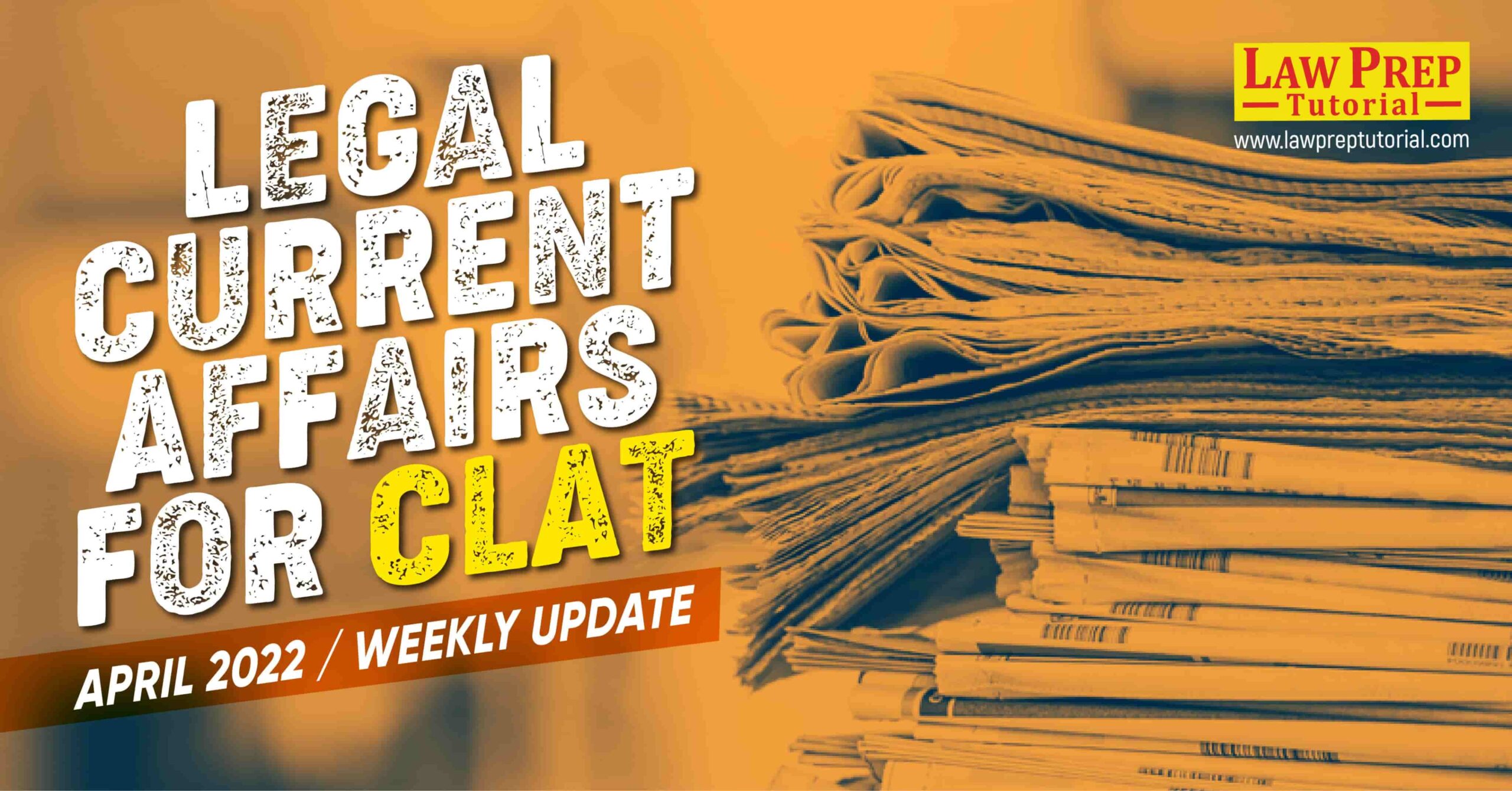
If you are preparing for the CLAT exam, current affairs play a crucial role in determining your test scores. Most students perform poorly in the current affairs section, significantly bringing their position down on the merit list. Current affairs are one of the most critical determinants of the CLAT examination that can either fetch you excellent marks or let you down. The most challenging part about dealing with the current affairs section is that it keeps changing. So, one has to keep updated with Legal Current Affairs for CLAT. Let us have a quick tour of the CLAT current affairs:
- Indian Antarctic Bill
On April 7, 2022, India signed the historic Indian Antarctic Bill. 2022 marks 40 long years after India signed the first Antarctic Treaty. The goal of this bill is to monitor and regulate the activities at research stations in Antarctica. This continent is a natural treasure hub of the planet, and it is our dirty to safeguard it. Since sustainability and the environment is one of the trending topics in the recent decade, students should know about this while brushing up on current affairs for CLAT 2022.
- The Emmett Till Anti-Lynching Act
The President of The United States – Joe Biden, signed this treaty on April 2, 2022. As a crucial result of the recent upswells in America, the Biden government has signed this bill, labeling lynching as a hate crime and a punishable offense. The bill now turned into an act named after Emmett Till – the black boy whose death instigated so much outrage across the globe.
- The USD 52 Billions Chip Bill
Being one of the most hyped topics of the recent month, this has led to a thorough discussion worldwide. After the pandemic, there has been a complete massacre of the prevailing import-export deals of the entire world. Also, after the seclusion of Russia by America, a great vacuum has been created in the market for imported products from Russia. One such product is semiconductors. The US Senate has channeled 52 billion US dollars into manufacturing semiconductors to face the problem.
- The IPC Amendment
The government of India made essential amendments to the Code of Criminal Procedures, the Indian Penal Code, and the Indian Evidence Act. These amendments make sweeping changes in the Criminal Laws of India. To make these changes, suggestions have been proposed by the Home Affairs Ministry and the states. This is an essential step in the overall remodeling of Indian Penal Codes, especially the criminal law section.
- National E-Vidhan Application
The National E-Vidhan program has been launched in Nagaland State Assembly. This is a work mode through which the House Proceedings are conducted on the NIC Cloud. This NIC cloud is named Megh Raj.
- Scheduled Tribe Amendment Bill
Indian Constitution already has a list of tribes on the schedule. The center has passed a bill according to which there are various other communities in the Scheduled Tribes Section. It was signed on March 15, 2022.
- TRAI Act
The Indian Parliament passed the Telecom Regulatory Authority of India (TRAI) Act in 1997 to monitor, regulate and control types of telecom activities in India. In 2022, this regulation will complete its 25th year. The 25th year of this Bill was made significant and essential by TRAI through a conference with all the stakeholders of the act, including the members of the Telecom, Broadcasting, and IT departments.
- Census Rules
Census has always played a significant role in the Indian judiciary. On March 11, 2022, the Union government issued a gazette notification that introduced specific new terms in the Census laws. These were – “electronic form” and “self-enumeration.” Survey questions related to them are included in the census survey form. It is expected that this inclusion shall enhance the effectiveness and reliability of the Census.
- Karnataka VC Verdict on Hijab
This year, the matter has attracted a ton of attention and will undoubtedly remain CLAT’s most critical current affairs. On March 15, 2022, the judiciary board of the Karnataka High Court passed a verdict saying that the wearing of any religious symbols should not be allowed in educational institutions. The bench explained that educational institutions are a place of secularism, and the wearing of headscarves by Muslim girls should be banned in educational institutes like schools and colleges. This verdict led to a nationwide turmoil and a vast conflict that soon took up communal shapes.
Final Words
To know more about daily current affairs for CLAT
- Join a reputed CLAT coaching institute.
- Also, do not miss out on mock tests and test series for CLAT.
These help candidates prepare better for exams and understand their strengths and weakness. It is easy to crack CLAT with intelligent, intelligent planning and strategy. All you need is clever work and dedication.

Leave a Reply